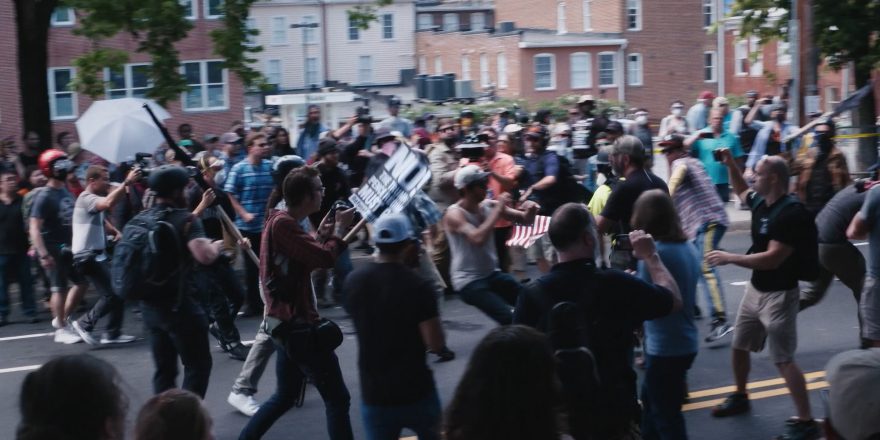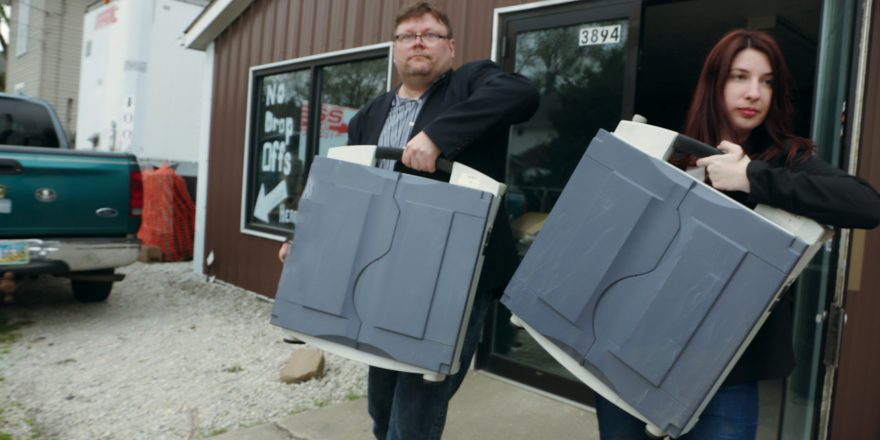As a documentary filmmaker and political junkie, following the Sanders campaign was something I wanted to do. It was something I needed to do. It was something I did.
I was attracted not just by Bernie Sanders, but by the movement that he had built. He was leading a crusade against big corporate entities, the “establishment,” Wall Street, the pharmaceutical companies, the military industrial complex, and fossil fuel companies. It was a classic David vs. Goliath situation, and who doesn’t like a great underdog story?
Speaking of an underdog story. … The fact that we were able to get this documentary made was remarkable on many levels.

No money? No distribution? No problem. As a storyteller who moves between independent filmmaking and showrunning unscripted television, I’m comfortable in both worlds. Ultimately, we were successful with the 2018 independent film we produced, American Relapse, as it was adapted and spun off into a full series entitled Dopesick Nation, which we produced for VICE. Those projects were deeply personal for me, as I have friends and family members battling drug addiction, and Bernie Blackout was also personal, so I wasn’t worried about getting a deal or making money – I was driven to capture the story. Three days before the Iowa Caucus, I called up one of my favorite DPs, Greg Taylor (who shot Dopesick Nation), and asked if he would join me on the campaign trail. Thankfully, he said yes.
We began shooting at the end of January and wrapped almost five weeks later when the Governor of Ohio cancelled Bernie’s election night rally in Cleveland. As coronavirus began to spread through the nation, we were entrenched with a Sanders campaign that was holding up to five events a day, with massive crowds in packed spaces. After shooting between January 31 and March 11, and dotting around the country on nearly 25 flights, we returned to Los Angeles. It was on the return flight from the canceled Cleveland event that we received word that VICE had greenlit us for their new VICE Versa strand, which is described as a series of “independent documentaries that give voice to radical and unapologetic points of view.” Perfect. I couldn’t believe it, but it was happening and happening and fast. And they wanted it delivered ASAP!

Against the backdrop of the pandemic, I assembled a gifted group of storytellers that were tasked with delivering a locked cut for a feature documentary in less than five weeks. Adam Linkenhelt and Terry Hahin came on as co-executive producers, Chris Lockett as one of the lead editors, Matt Orfalea as a producer, Egan Kolb working on graphics. We worked with Devon Collin’s Revolution Post team for color and finishing, and Jon Plane at Vaudeville for the mix. The VICE team was such a strong partner for this project, despite being based in New York City, which was then, and still is, under siege by a pandemic. There are many more names to mention, but this was truly a collective effort and an epitome of the spirit it takes to create a project under incredibly challenging circumstances such as these.
My initial motivation for the documentary was to uncover the deliberate lack of media coverage regarding Senator Sanders’ campaign. Bernie Sanders faced a media blackout that helped sink his 2016 run for president, and in 2019 the trend continued: Sanders received less media coverage and a higher rate of negative press than his top rivals for the Democratic Party’s nomination. Fast forward to 2020, the corporate media’s reporting of Bernie had evolved into the “Stop Sanders” movement that pushed false narratives such as “Bernie’s not electable.”

Another theme we explored in Bernie Blackout is a frustrated younger generation of voters who do not trust mainstream corporate media. On the campaign trail, it is evident that there is a tone of disgust with cable news channels like MSNBC and Fox News. A condescending dialogue has surfaced between corporate media and young progressives. This new generation of voters do not trust cable news, and more and more they do not watch those channels at all. Millennials and other young people are seeking out other news sources, sources that they can trust. This generation has not pledged allegiance to Chris Matthews, or Sean Hannity. Bernie Blackout: The Revolution Will Not Be Televised is not only about the lack of coverage of or unfair coverage of the Sanders’ campaign, but also a hard look at a new generation and their relationship to news and politics.
As a storyteller, I know firsthand how to edit and create a narrative. When it comes to corporate media and the cable punditry shows, I was disgusted to witness their power and influence. Fortunately, their abuse and bias in reporting the news and following elections is not going unchecked. There’s a committed force of independent journalists using a variety of methods to combat other “blackouts” occurring every day.
Featured image of Bernie Sanders by Gregory Taylor.








